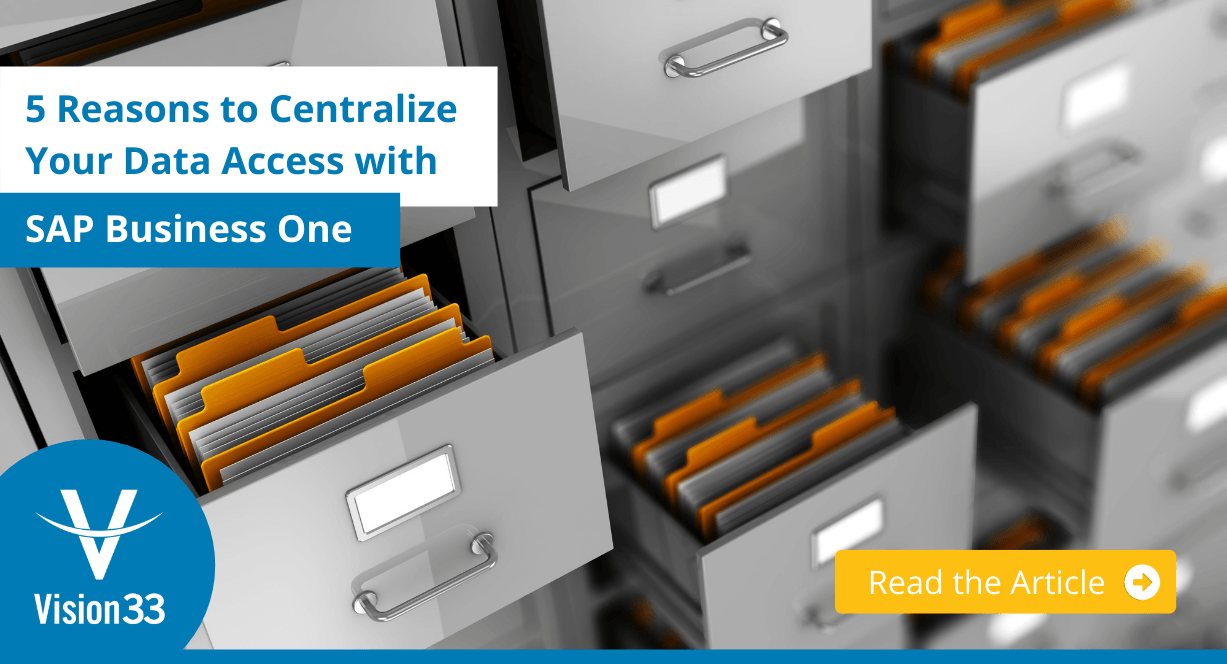6 Reasons Businesses Choose SAP Business One Over NetSuite
SAP Business OneIn this blog post, we discuss SAP Business One and NetSuite and the top 6 reasons businesses prefer...

December 06, 2016
Blog > 5 Reasons to Centralize Your Business Data With SAP Business One
Using a standalone application to manage the finances of your business might be sufficient when starting out, but many things change as your business grows. The number of employees needed multiplies, orders and logistics increase, and hopefully, so does your revenue. In addition to these obvious changes, business owners are forced to deal with, and better manage, the increase in data. Departments have different data, and it is important that each set of data speaks to each other in an effort for the business to run smoothly. Often times with growing businesses, several different software systems are being used, which ultimately results in data duplication, human error, and data mismanagement. Centralizing business data for better reporting with an integrated Enterprise Resource Planning (ERP) system allows management to spend less time on day-to-day tasks, and more time on strategic decision-making.
SAP Business One can help your business gain better intelligence and control of your data by having one centralized system. By doing so, users can leverage the custom reporting and analytical tools available through SAP Business One, providing necessary insight into business operations.
Here are five more reasons you should centralize your business data with SAP Business One.

There is a common theme for fast growing, small and medium-sized businesses. Data can become scattered and fragmented, resulting in data duplication and mismanagement. Using an ERP system such as SAP Business One allows management to integrate all business data, leverage the custom reporting and analytical tools, and ultimately increase customer satisfaction through improved business operations.
To learn more about how to generate, and analyze valuable reports through SAP Business One, download the ERP Reporting Guide.
Subscribe to our newsletter to receive our latest blog posts, case studies and ERP news delivered straight to your inbox.
In this blog post, we discuss SAP Business One and NetSuite and the top 6 reasons businesses prefer...
Here are 5 reasons SAP Business One is the preferred cloud ERP solution for growing businesses—and...
Learn how SAP cloud ERP solutions reduce cost and digitally transform growing businesses into...
Recieve our latest blog posts, case studies, and ERP news
delivered straight to your inbox.